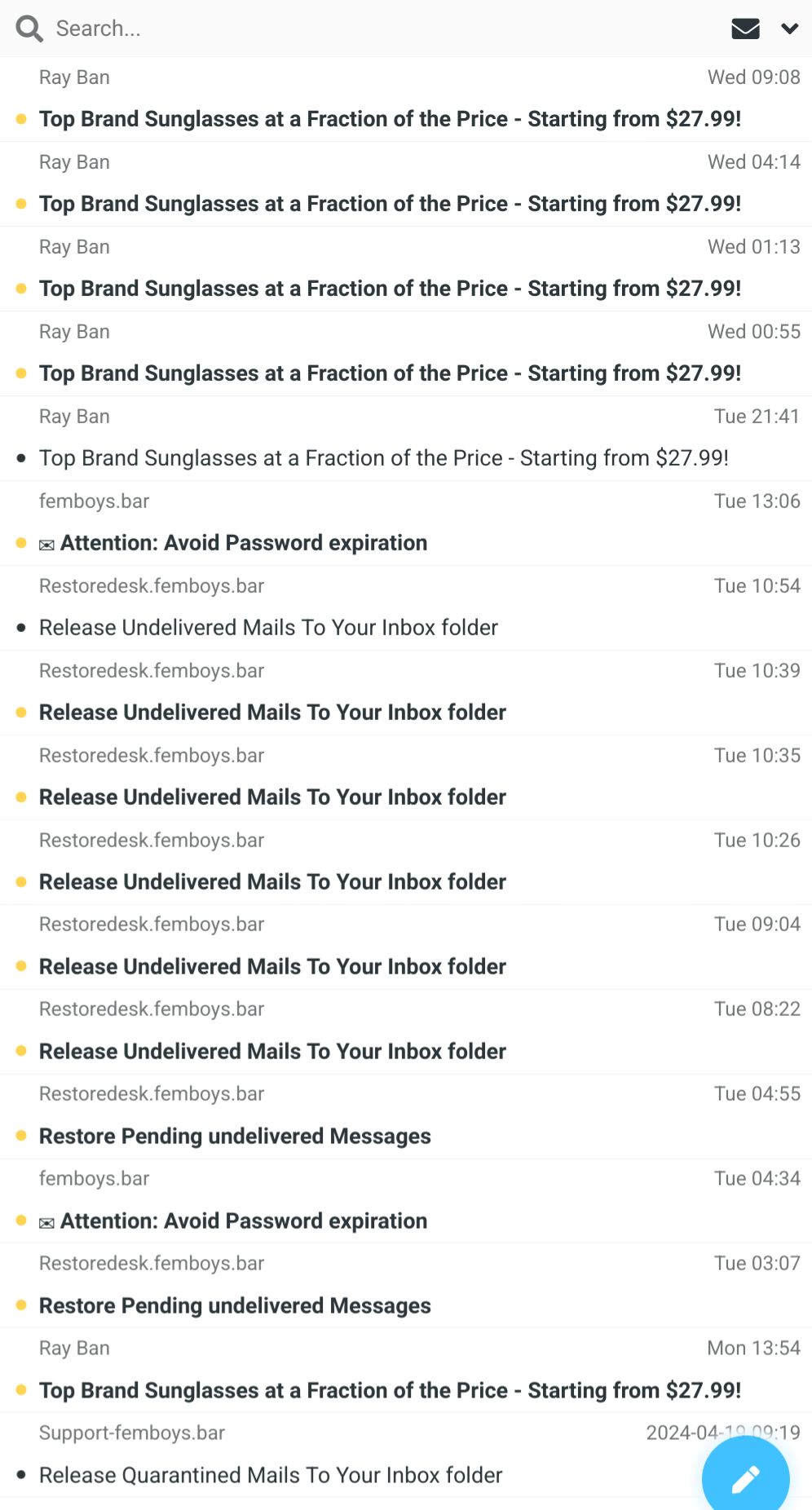If you only need a bare minimum, and don't plan to heavily use CI/CD, container/packages registries, integrations with other tools i would go with gitea/forgejo (you can always use external tools on top), else i would use selfhosted Gitlab, it has pretty much all the things you could imagine to need with software development and deployment
thankfully that is a special mailbox for spam, I sometimes like to come through the emails and see where they submit the data, and maybe submit some data on my own, plus report the issue to website owner/hosting
it depends on your email provider/server, search under term "catch-all" or alias. I'm using a self hosted email on hestiacp, which have a option under domain email settings
At my instance I did setup a email wildcard (receive emails from any address on that domain which don't already have a account) and I get a lot of phishing and scam emails, most of them are send "to" /c/meta@femboys.bar, as link to this community is linked in sidebar, but I also seen emails "send to" random usernames

So yeah, It is happening, i wonder how bad it is on larger instances
you can play on multiplayer just fine, as long as server have enabled offline-mode
For minecraft you can just use a offline mode in pretty much every 3rd party launcher, like SKLauncher
I doubt it was a real wallet - most likely it was just a scam exchange that would prompt you to send cryptocurrency "for verification" before you could try to withdraw them.
The idea was already exploited on prnt.sc, where it is possible to try bruteforce screenshot ID and find other users public screenshots - https://splashdot.github.io/scam1/
Your docker install is too old and it doesn't support that docker-compose version, you probably should update your docker to more recent one (are you running debian 10 on default repositories?), or you could remove logging references from file (these x-logging lines in each service and whole section on top of file)
I'm using x2go to access my remote KDE session for a couple of years now - it runs over ssh tunnel and supports audio, generally im pretty happy with the performance, the only disadvantage that I come across is a lack of mobile app and the session sometimes can be a bit flakey
My instance is actually behind cloudflare and it works fine, but remember that it would be possible to "expose" ip of your server due to federation, as your server will talk to other server (directly, that traffic won't go over cloudflare), so if you are paranoid about that, i would recommend setting up a wireguard tunnel to cloud instance, and forwarding the traffic that way, or just setup the lemmy on that instance
Myself i'm running a instance for two people in a pretty small lxc container on my home server- 1vCore, 512MB of ram and 8GB storage. Currently it utilize around 5% of CPU, ~250MB of ram (+260MB of swap), and ~2GB of storage (nearly 50/50 picts/postgres), in terms of network traffic i see average of 20kb/s, depends how many communities are you subscribed for.
My homeserver is running on i3-4150, 16GB ram and a couple of ssds, using Proxmox VE as hypervisor
edit: typo



Suzy-Q cable is used to low-level interact with newer chromebooks firmware, you can for example disable firmware write protection (previously it was done with a screw), debug hardware and unbrick chromebook
you can read on it a bit more in official Google docs: https://chromium.googlesource.com/chromiumos/third_party/hdctools/+/HEAD/docs/ccd.md